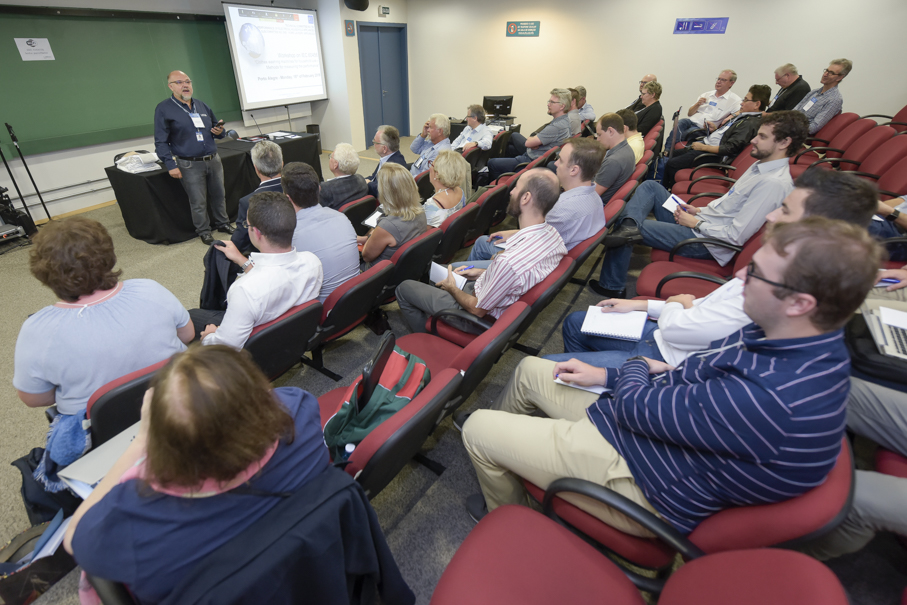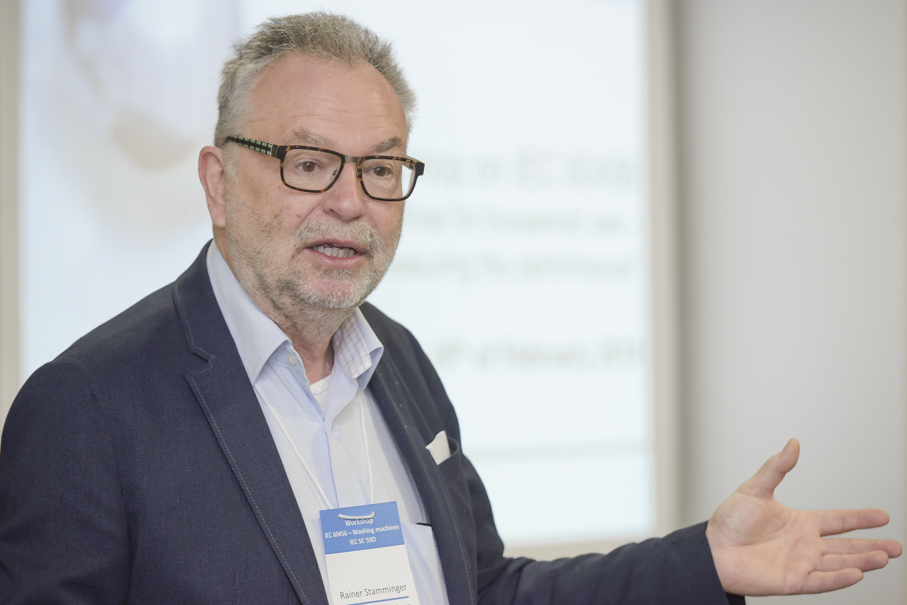Event held from February 18 to 22 discusses international procedures in the performance of energy safety and efficiency tests in washing machines

The director of Labelo, Israel Teixeira, stresses the importance of PUCRS hosting the event/ Photo: Bruno Todeschini
Brazil is for the first time hosting a meeting of the International Electrotechnical Commission (IEC), a major organization in the definition of international standards for electrical and electronic equipment and related technologies. From February 18 to 22, representatives from several countries will be at PUCRS to discuss needs and requirements for international procedures in the performance of energy safety and efficiency tests in washing machines.
PUCRS was chosen to host the event – exclusively for IEC members – through the global appliances manufacturer Whirlpool and Labelo, the Electrical and Electronics Testing Laboratory of the University. A total of 40 countries participate in the commission, including Australia, China, France, Germany, Japan, South Korea, Russia, Switzerland, United Kingdom and United States, among others.
According to Carlos Bindé, Labelo’s Development and Quality Coordinator, this is an opportunity to present the activities developed in the laboratory as a service provider, strengthening relations with an important organization focused on the global electrical and electronic market. “IEC representatives here are Product Development Directors of large multinational companies. When they need to test products for the Latin American market, they will have Labelo as a reference for infrastructure and quality,” he says.
The event

Professor Stamminger, from Bonn University, highlighted the excellent facilities on Campus/Photo: Bruno Todeschini
At the opening, Vanderlei Niehues, Whirlpool’s Director of Sustainability and Regulatory Affairs, highlighted Labelo’s proactiveness in offering to host the event and PUCRS’ facilities as key factors in its choice as venue for the first IEC meeting in Brazil. Professor Rainer Stamminger from the University of Bonn (Germany) highlighted the excellent facilities on campus. “We come from all over the globe and we are happy to meet in Brazil,” he said. During their time at PUCRS, besides the activities of Labelo, participants will get to know Tecnopuc and the Inovapuc Network as tools for innovation and industry development.
On the first day, representatives of 33 companies, as well as of regulatory agencies from each country, attended a workshop on standardization and one of the most expected topics: the debate on “stain strips”, materials used to test the actual washing capacity of machines available on the market. “The energy rating label informs not only how much energy a machine consumes, but also its cleaning capacity. For tests to follow the same standards worldwide, the stain strips must be homogeneous and manufactured equally everywhere,” explains Labelo’s director, Israel Teixeira. Throughout the week, about 25 IEC members will seek consensus on washing machine testing and standards.
About IEC
Founded in 1906, the International Electrotechnical Commission has reached about 175 countries and edits electrical standards for electrical safety testing of equipment in most parts of the world. The standards are developed in consensus with all countries involved. “This committee is extremely relevant because it shows trends in this area for the next few years. As we are part of the global system of compliance assessment and one of the main actors in the Brazilian context, it is extremely important for us to host this meeting,” concludes Teixeira.